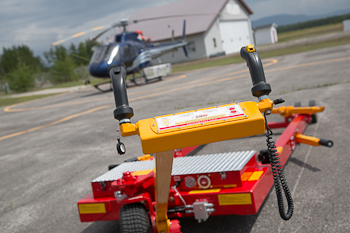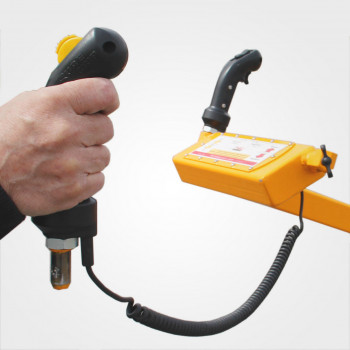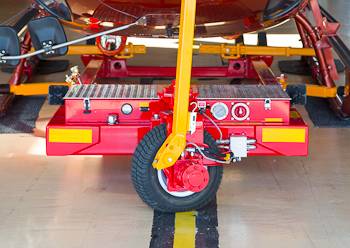Concept
The Heli-Carrier attachments hook at the helicopter wheel pins located on the skids.
The lifting point is located slightly forward of the helicopter's center of gravity.
The helicopter is then lifted from that point in a tail heavy mode.
The front skids then come to rest safely against counterweight arms.
This system has the advantage of offering a quick, easy and very safe attachment process.
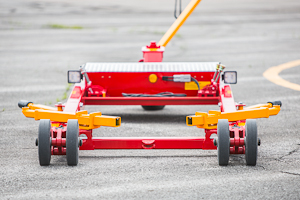
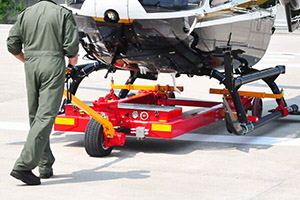
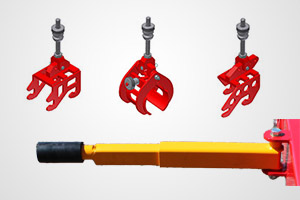
Obstacle free frame
The Heli-Carrier frame has a "U" shape. The Carrier is designed to kneel down and crawl under the helicopter. This concept has the advantage of clearing most helicopter belly accessories such as line hooks.
3 point contact to ground
The Heli-Carrier has wheel contact to ground in three points. This design ensures continuous wheel contact to ground when operating over uneven terrain. It is a great safety feature when ground surface is less than ideal.
Effortless attachement
Attaching the helicopter to the Heli-Carrier is done in two easy steps. The first step is to install the hooks and the second is to pull out the counterweight arms! That's it.
Skid Attachments Versatility
The Heli-Carrier was designed to easily serve multiple helicopter types. Switching attachment hooks
is effortless, quick and simple. The switch from one hook type to another requires no tools.
AS350 / H125
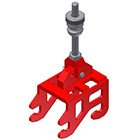
H120
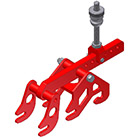
H130
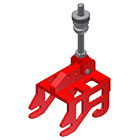
H145
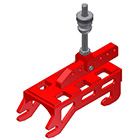
MD500
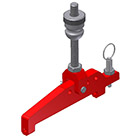
Univ (H135)
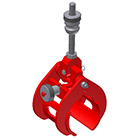
B206B
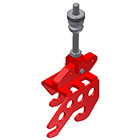
B206L, B407, B205, B212, B214B, B412
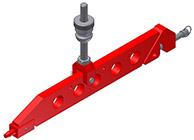
B429

Safety
Safety concern was present at each step of product development. This resulted in great safety features:
The Heli-Carrier can only be operated at brisk mode if the operator has taken a clear decision to do so. The machine needs to be brought to a full stop to be able to trigger the faster mode. This is a great feature for operations within hangars.
The slow speed mode is activated by a proportional switch that ensures operator has full control of device.
When releasing action buttons the machine automatically decelerates to a stop to prevent the helicopter and its blades from rocking.
Forward and backward movements are controled by a hand grip on extendable cord. It can be operated from the control panel or hand held. When the hand grip is hand held the operator can get a good view of the tail and the blades while backing helicopter into the hangar.
A hydraulic retention valve holds pressure in the system to keep the machine from quickly rolling down a slope should the operator be distracted from hangaring operations.
When not in use, the carrier's traction wheel can be veered over 90 degrees in order to work as an additional safety brake against undesired roll down uneven tarmacs.
